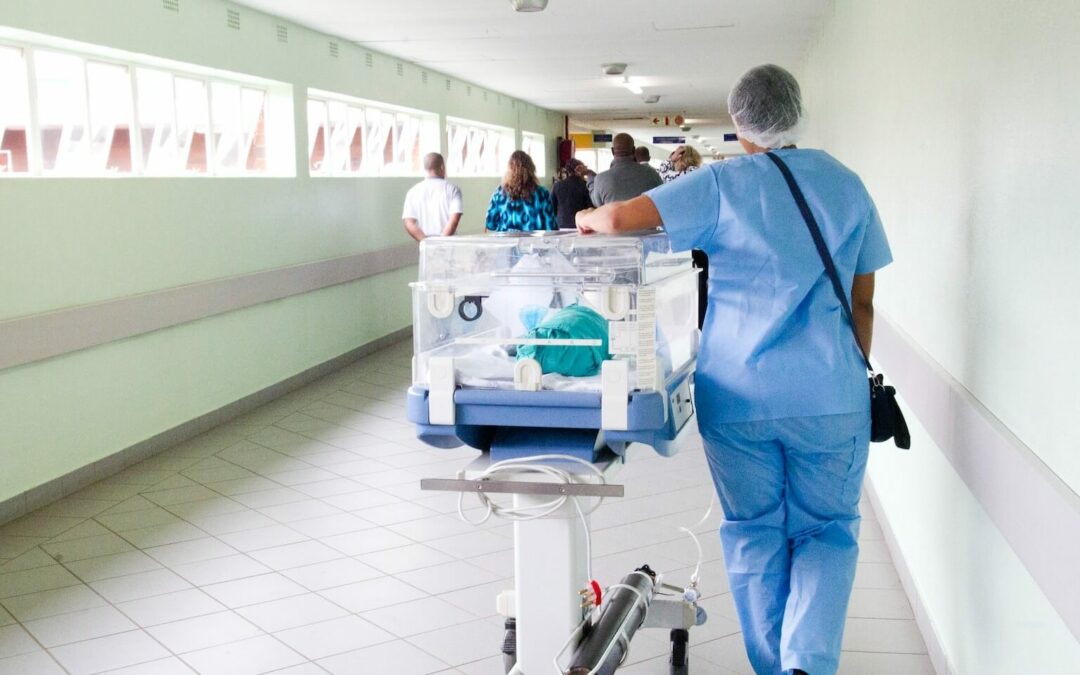According to the American Hospital Association, there are over 5,000 community hospitals in the U.S. Modern hospitals are truly unique facilities made up of complex electrical, ventilation, medical gas, fire safety, and plumbing systems designed to protect the most vulnerable. Behind the scenes at every hospital and healthcare facility are maintenance technicians providing critical upkeep and ensuring comfort and shelter for diverse patient populations.
Unfortunately, healthcare maintenance personnel have few opportunities to gain formal education or training for their highly specialized roles. Most learn on the job or follow standards passed down from predecessors. In some regions, healthcare facility professionals receive lower salaries than peers working outside the healthcare industry. This makes it challenging to recruit a younger workforce and retain workers.
The Institute for Healthcare Facilities Engineering Advancement (IHFEA) provides formal training and certification for healthcare facilities professionals. Its mission is to “inspire, promote, and advance career paths and standards of excellence for the healthcare facilities engineering technician profession.”
Nocti Business Solutions (NBS) was proud to help develop the Certified Healthcare Facilities Technician (CHFT) certification. We worked closely with Mike Canales, president of IHFEA and Program Director for the Healthcare Facilities Leadership & Technician at Owensboro Community and Technical College.
Developing an Educational Pathway
In 2017, Canales began working with other industry professionals to create a comprehensive set of standards and educational competencies. Using these standards, Canales then developed coursework designed to equip entry-level healthcare facilities technicians with the critical skills needed on the job.
One goal behind the curriculum was to avoid learners memorizing rote knowledge and instead understand the “why” behind every task. “I wanted to develop a pathway that creates confidence, competence, engagement, and building ownership while breaking down industry silos,” said Canales. “While the competencies are supported by safety, compliance, and regulation standards, the curriculum encourages learners to engage with their surroundings and to understand how these complex building systems work in conjunction with each other.”
After developing the competencies and coursework, Canales began looking for a certification partner. Not only would a third-party certification validate learners’ skills, but it would also be foundational to future growth and educational content.
Partnering with Nocti Business Solutions
Using the standards and competencies developed by the IHFEA as a foundation, NBS worked closely with Mike Canales to develop the certification in just six months.
Because of the industry’s unique skill set, many of the 145 exam questions had to be developed completely from scratch. Dr. Tina Koepf, a Psychometrician on staff at NBS, remarked on the unique nature of the credential, “As a Psychometrician, I have developed skilled trades assessments for many industries including plastics, steel, food, aviation, yacht, robotics, and power distribution. Many industries share similar skills when it comes to mechanical and electrical competencies. I am impressed that the Healthcare Facility Technician not only requires the building construction, mechanical, and electrical skills as foundational building blocks, but must adhere to high-level patient safety protocols that are crucial to the healthcare ecosystem.”
The Certified Healthcare Facilities Technician (CHFT) certification is built around six foundational healthcare facilities competencies:
- Life Safety
- Medical Gas
- Basic Electrical & Electrical Equipment Testing
- Basic HVAC & Ventilation Requirements
- Infection Prevention
- Healthcare Departments and Special Features
These competencies integrate general building maintenance with a foundational understanding of the unique healthcare environment. The competencies are supported by safety, compliance, and regulation standards combined with direct operational application. They also address serious historical issues identified by accrediting and regulatory bodies.
“Working with NBS was pivotal,” said Canales, “Not only did they help affirm the credibility of the credential, but the breadth and depth of their experience was invaluable during the exam, pilot test, blueprint, and handbook steps. The team also brought such positive energy and sense of encouragement to the table. Everyone involved shared a genuine desire for success and that helped us meet our accelerated timeline.”
Foundation for Continued Growth
Since the credential launched in 2019, IHFEA has certified 57 healthcare facility technicians and has 80 additional students currently enrolled in training modules. With an online testing platform, options for remote proctoring, and comprehensive reporting capabilities, IHFEA has a solid foundation for continued growth.
Like many other skilled trades, the current skills gap is having a negative impact on healthcare facilities management. Not only is the current workforce approaching retirement age, but fewer entry-level workers are entering the workplace. IHFEA hopes this credential will help establish a clear and effective pathway of education and professional development for the recruitment, retention, and accelerated advancement of healthcare facilities technicians, even in the most remote communities.
“One of my goals is to create a consistent pipeline of skilled and passionate healthcare facility technicians,” said Canales. “If there’s one thing I’d want people to know about this certification, is its power to change the trajectory of your career. The skills you learn will help you move up the management ladder, from ‘hammer to head honcho’ if you will. These skills also translate to facilities management positions in other industries. There are so many rewarding and fulfilling careers waiting for you here.”
Mike Canales is the 2022 recipient of the American Society of Healthcare Engineers (ASHE) President’s Award for his contribution to the field through education and service.

Recent Comments